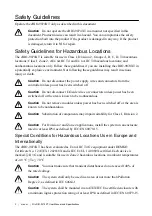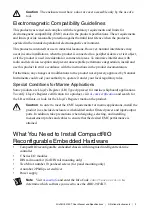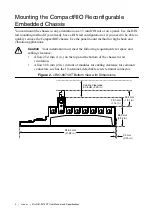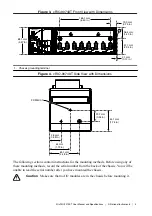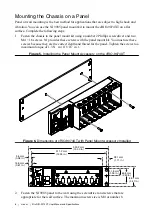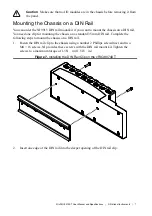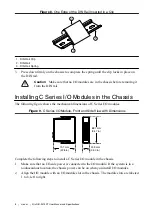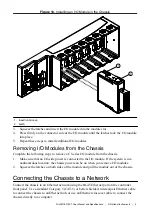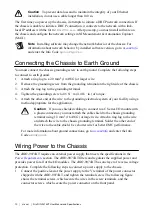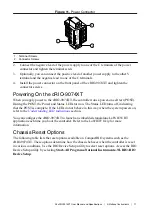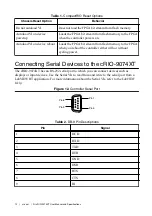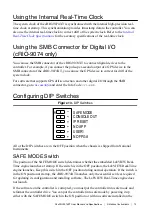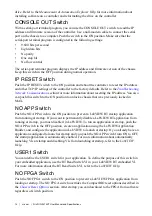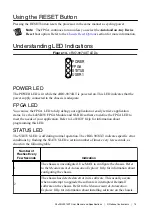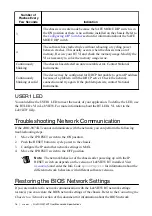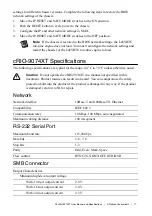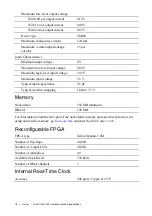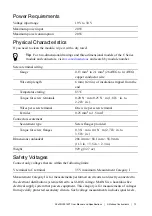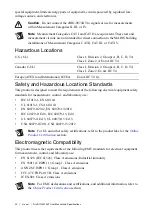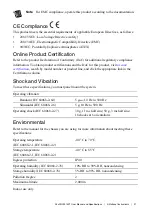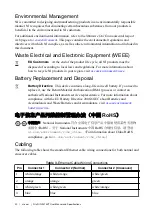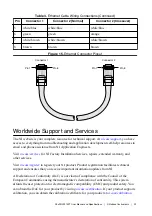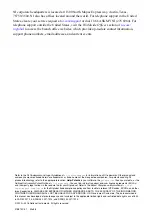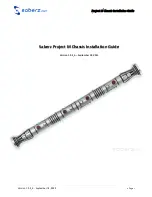
Number of
Flashes Every
Few Seconds
Indication
3
The chassis is in safe mode because the SAFE MODE DIP switch is in
the ON position or there is no software installed on the chassis. Refer to
the
section for information about the SAFE
MODE DIP switch.
4
The software has crashed twice without rebooting or cycling power
between crashes. This usually occurs when the chassis runs out of
memory. Review your RT VI and check the memory usage. Modify the
VI as necessary to solve the memory usage issue.
Continuously
blinking
The chassis has detected an unrecoverable error. Contact National
Instruments.
Continuously
blinking or solid
The device may be configured for DHCP but unable to get an IP address
because of a problem with the DHCP server. Check the network
connection and try again. If the problem persists, contact National
Instruments.
USER1 LED
You can define the USER1 LED to meet the needs of your application. To define the LED, use
the RT LEDs VI in LabVIEW. For more information about the RT LEDs VI, refer to the
LabVIEW Help
.
Troubleshooting Network Communication
If the cRIO-9074XT cannot communicate with the network, you can perform the following
troubleshooting steps.
1.
Move the IP RESET switch to the ON position.
2.
Push the RESET button to cycle power to the chassis.
3.
Configure the IP and other network settings in MAX.
4.
Move the IP RESET switch to the OFF position.
Note
The network behavior of the chassis after powering up with the IP
RESET switch on depends on the version of LabVIEW RT installed. Visit
ipconfigcrio
for information about the
different network behaviors with different software versions.
Restoring the BIOS Network Settings
If you are unable to fix network communication with the LabVIEW RT network settings
restored, you can restore the BIOS network settings of the chassis. Refer to the
Connecting the
Chassis to a Network
section of this document for information about the BIOS network
16
|
ni.com
|
NI cRIO-9074XT User Manual and Specifications

